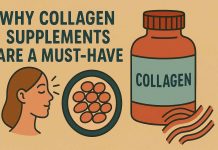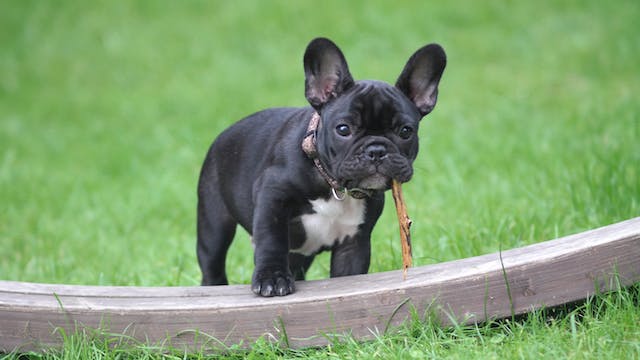As pet owners, we all want to treat our furry friends with their favorite foods. However, some human foods can be hazardous to the health of our beloved pets. In this blog post, we’ll discuss several toxic foods that you should keep far away from your pets and provide advice on what to do if they accidentally consume these harmful items.
What to Do If Your Pet Consumes a Toxic Food?
If you suspect your pet has ingested a toxic food, remain calm but act quickly. Try to determine what they ate and how much. Immediately call your veterinarian or an emergency animal clinic for advice. Have the ASPCA Animal Poison Control Center’s number (888-426-4435) saved in your phone in case of emergencies. If you notice your dog is throwing up undigested food, it may be a sign of an accidental ingestion of a toxic substance, and you should consult your veterinarian immediately.
Alcohol
Alcohol has a similar effect on pets as it does on humans but in much smaller amounts. Even a small sip can cause respiratory distress, vomiting, coma, and even death. Keep alcohol, including products that contain alcohol like certain medications and unbaked dough, out of reach from your curious pets.
Chocolate
Chocolate is a well-known forbidden treat for both dogs and cats. The culprit is a substance called theobromine, which can cause vomiting, diarrhea, rapid heart rate, seizures, and even death in pets. Dark chocolate, cocoa powder, and baking chocolate are especially dangerous as they contain higher levels of theobromine.
Caffeine
Caffeine isn’t just found in coffee; it’s also in tea, soda, and certain medications. When ingested by pets, it can cause a range of adverse reactions such as vomiting, diarrhea, restlessness, rapid breathing, muscle tremors, and even death. Avoid giving your pet access to caffeinated beverages and products.
Creating a Pet-Safe Environment
It’s essential to create a pet-safe environment in your home, especially when it comes to the kitchen. Store toxic foods in cabinets and pantries that are out of reach for your pets. Secure the trash can to ensure your pet cannot rummage through it for scraps, as many of these food items could be harmful. Educate family members and visitors about foods to avoid sharing with your pets, and explain the potential risks associated with ingesting these items.
Grapes and Raisins
These seemingly harmless fruits can cause acute kidney failure in dogs. The exact reason is still unknown, but even small quantities can have devastating effects. Keep your furry friend away from grapes, raisins, and products containing them, like trail mix or certain baked goods.
Avocado
A chemical called persin is found in avocados, and while it’s harmless to humans, it can be toxic to dogs, cats, and other animals. Ingestion can cause vomiting, diarrhea, and respiratory distress. Keep your pets away from guacamole and avocado-based products.
Xylitol
Xylitol, a sugar substitute found in sugar-free gum, candy, and some baked goods, is extremely toxic to dogs. When ingested, it can cause a rapid release of insulin, leading to hypoglycemia (low blood sugar). Symptoms may include vomiting, loss of coordination, seizures, and in severe cases, liver failure.
Dairy Products
Many pets are lactose intolerant to varying degrees, so it’s not a good idea to share your ice cream cone with them. The lactose found in dairy products can cause upset stomachs, vomiting, and diarrhea.
Raw Bread Dough
If your pet ingests raw bread dough, the warm environment of their stomach can cause it to rise, leading to abdominal pain and bloating. Additionally, the yeast in the dough metabolizes the sugars, producing alcohol, which can cause alcohol poisoning in pets.
Onions and Garlic
Onions, garlic, and other members of the Allium family (such as leeks and chives) can damage pets’ red blood cells, leading to anemia. Cooking or processing these foods does not lessen their toxicity. If your pet ingests a significant amount, they may require a blood transfusion as part of their treatment.
Alternative Treats and Foods for Pets
As a responsible pet owner, you might be wondering about alternative food options for your pets. Many pet stores offer pet-safe treats and chews that can help satisfy their cravings. Opt for pet treats made with natural ingredients, and always be cautious with store-bought treats, checking for ingredients that may be harmful to your pet(s). Homemade pet treats are another option – many recipes can be found online that cater specifically to the dietary needs of dogs or cats.
Macadamia Nuts
Specifically toxic to dogs, macadamia nuts can cause weakness, vomiting, and tremors. Be cautious with any food items containing these nuts, like cookies and trail mixes, and make sure they’re stored safely away from your furry friend.
Recognizing Common Allergies and Sensitivities in Pets
Beyond toxic foods, it’s essential to be aware of common allergies and sensitivities your pet might have. Dogs and cats can experience food allergies just like humans, with common allergens including beef, chicken, dairy, and wheat. Signs of a food allergy may include itching, ear infections, gastrointestinal issues, or respiratory distress. If you notice any of these symptoms, consult your veterinarian about modifying your pet’s diet and proper treatments.
By staying informed about these toxic foods, pet owners can better protect their pets from these common hazards. Always be cautious with what your pets have access to, store toxic foods safely out of reach, and be prepared to act if your pet ingests something harmful. Remember, prevention is key to keeping our furry friends safe and healthy.













